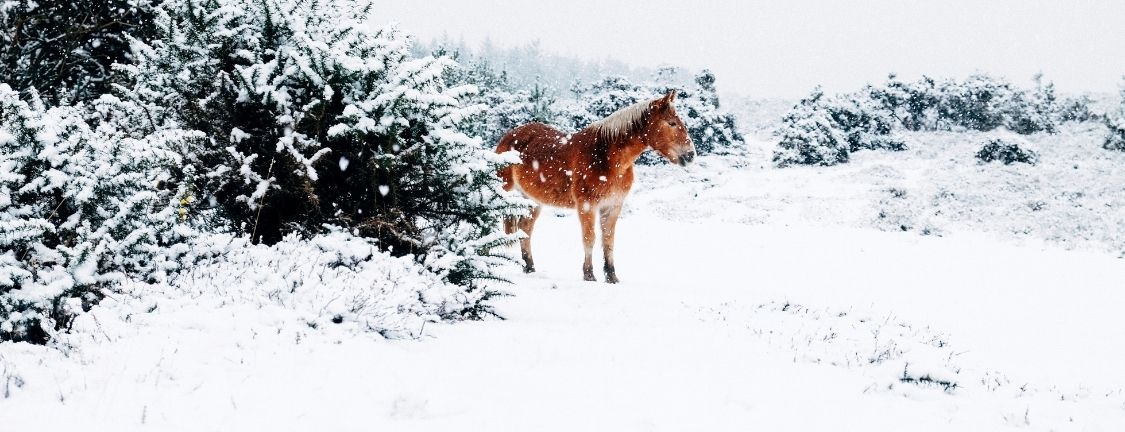
Horse riding First Aid – The Signs of Hypothermia
When working with horses, everyone understands there is a certain risk involved, but few of us ever think about the risk associated with the lifestyle we all know and love. As equestrians, we expose ourselves to the elements day in and day out. Blistering heat in the summer and freezing temperatures in the winter. But how often do we stop and think of the consequences of this exposure? Would you know what to do if the elements took hold and got the better of you?
Cory Jones from First Aid Training Co-operative is back to go through the top things horse riders need to know about when it comes to hypothermia.
We all know the summer is short and as the seasons change so does the weather. Most of us will experience snow and freezing temperatures during the winter months. This is the time of year we are all starting to wrap up, the nights are drawing in and we should all know how to spot and quickly treat the problems caused by extreme cold.
Do children feel the cold?
Children are particularly suspectable to the cold. One of the things to remember when they claim that they don't feel cold is that they probably really don't feel cold as they are naturally so active that their bodies are generating enough heat to keep them feeling warm. This can be dangerous because young children's bodies are less able to regulate their internal temperature as a result of their bodies' smaller surface area, smaller amounts of subcutaneous fat, and a not-yet-fully-developed ability to shiver.
What is hypothermia?
Hypothermia is a condition where someone’s body temperature drops below 35°C (normal body temperature is around 37°C). It is generally caused by prolonged time spent outside in cold conditions hence equestrians are vulnerable to hypothermia. As the surface of your body cools the cold blood at the surface is pumped into the bodies core, reducing your core body temperature. This is hypothermia.
What are the signs of hypothermia?
Hypothermia is easy to spot with obvious symptoms including; shivering; cold, pale and dry skin; confusion; slow, shallow breathing; tiredness; irrational behaviour and a slow and weakening pulse. The most common signs of hypothermia in my experience are that people look cold and can be pretty grumpy.

How to treat hypothermia
If you fear someone is becoming hypothermic it is vital to try and deal with it immediately and get them inside as quickly as possible. Warm them up using layers of blankets and heating the room to 25°C. Also, feed them with high-energy food like chocolate and hot non-caffeinated drinks.
If you are working with a group of horse riders, remember that if one person is starting to get really cold then it is likely others will be too. Take action before the problem escalates.
How serious is hypothermia?
Hypothermia can quickly become life-threatening and severe hypothermia is when the body temperature falls below 30°C and is often fatal. At this point casualties will be unconscious of near unconsciousness.
If the person is outside and you are unable to bring them in you must act fast, ring 999/112 and ask for an ambulance. While you wait, stay with the patient and get them off the cold floor anyway possible. Keep talking to your patient and monitor their pulse, breathing and responsiveness until medical help arrives.
How to prevent hypothermia
Prevention is better than cure. Dress for the conditions, have access to spare food and warm drinks. Regardless of the season or the temperature equestrians are vulnerable and as such we should all be prepared with correct first aid.

About Medi-K and The First Aid Training Co-operative:
Medi-K offer a wide range of first aid courses designed especially for equestrians, yard owners and grooms of all levels which will ensure you are prepared for all weather-related situations.

Cory Jones is a Director of Medi-K and First Aid Training Co-operative. They work together to run highly respected equestrian specific first aid courses. He has been running first aid courses for outdoor workers for over 20 years. Along with the training team at Medi-K, Cory has developed an equestrian first aid manual that can be downloaded to your phone or tablet.
